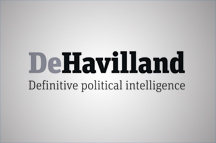DeHavilland considers the key policy and political themes set to dominate the party conference season in 2015.
What a difference a year makes. The contrast between the Liberal Democrats’ position last autumn and their current MP-impoverished state could not be starker, as the party continues to come to terms with its electoral drubbing and unceremonious ejection from the halls of power.
For new leader Tim Farron, the conference will provide an opportunity to shape his public image and determine how the party portrays itself in the future.
With the results of the Labour leadership election revealed just a week before, the question facing the party will concern how to present itself as a compelling alternative to both the Government and a fractious official Opposition. Will it gain a renewed identity as a progressive centrist option while Labour strays defiantly leftward?
Elsewhere, in Brighton, the mood at Labour Conference threatens to prove mutinous – or at least intensely dramatic.
With the leadership election having taken an unexpected left turn, the new leader – whoever emerges victorious – will inevitably be faced with a divided party and a re-energised left wing. Will they succeed in harnessing the power of Corbynmania, or will deeper cracks appear?
Furthermore, faced with a long period out of power, ambitious types may find themselves increasingly focused on the capital, whose 2016 mayoral race seems to offer a bright spot in Labour’s electoral landscape.
With a candidate decided, party insiders will be eager to commence campaigning with heady hopes of winning the top job in one of the few areas where its May vote appeared strong. Benefits, housing and public transport could all find themselves pushed further up the agenda as a result.
Meanwhile, expect champagne corks a-popping at Conservative Conference as the party continues to digest its giddy and unexpected election victory, though tensions over aid and matters European could breed a slightly strained atmosphere.
With George Osborne setting the course for yet more austerity, savings will be top of the agenda, though his desire for industrial renewal could provoke some interesting syntheses. And the Manchester setting looks sure to provide ample opportunities to discuss the much-vaunted “Northern Powerhouse” and devolution agenda.
And that old cultural chestnut the BBC also seems likely to provide talking heads with both a platform and a subject for their discussions over perceived bias and due or undue market influence.
Finally, all eyes will be looking north with greater urgency than ever as the SNP Conference concludes the season with its biggest ever UK-level event.
While discussions are sure to focus on topics dear to its Parliamentarians’ hearts, such as austerity’s impact and self-determination, we can also expect to witness new campaigning themes develop in the crucial field of energy, where a distinctive set of priorities are shaped by Scotland’s unique industrial heritage, stark natural environment and specific set of needs.
Please click here more information about DeHavilland’s party conferences coverage.












